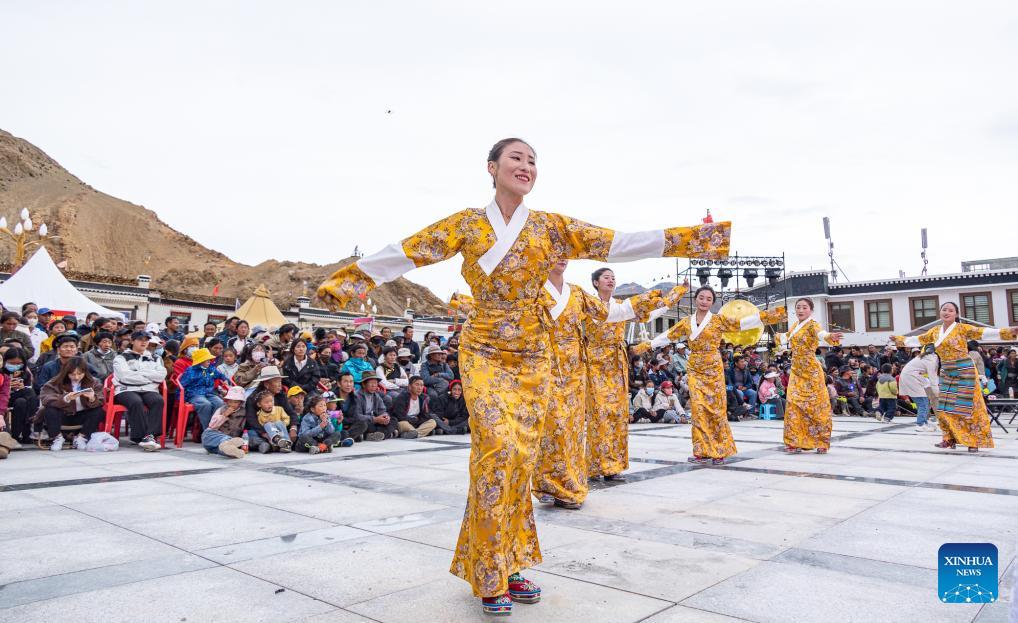
Performers dance at a music and food festival in Zhaxizom Township, Tingri County, southwest China's Tibet Autonomous Region, July 23, 2023. (Photo by Tenzin Nyida/Xinhua)
The performance marked the beginning of a monthlong music and food festival in the township. Zhaxizom is situated approximately 4,200 meters above sea level at the foot of Mount Qomolangma, the world's highest peak. It is under the jurisdiction of Tingri County and is located about 49 kilometers from Mount Qomolangma's Base Camp, making it a frequent stop for people traveling to the mountain.
"I planned to head straight to Mount Qomolangma Base Camp, but when I arrived in the small town, the amazing festival caught my attention. I decided to stay in the town for several more days to enjoy the music and cuisine here before continuing my journey," said a traveler surnamed Zhang, who is from northeast China's Liaoning Province.
"The festival can help people learn more about our town. It not only enriches our lives but will also become a new attraction for tourists," said Migmar Lhamo, a college student residing in the town.
Migmar Lhamo believes the festival will play a positive role in promoting the development of local culture and tourism.
According to the county government, more events such as live music shows, fireworks displays, special delicacy fairs and bonfire parties will be held during the festival to provide both residents and tourists with an impressive experience of local culture.
Almost three decades ago, China's central government made a major decision to rally support for Tibet's development. A pairing assistance policy was established in 1994 to link specific areas of Tibet with central state organizations, provincial-level regions and state-owned enterprises.
Tingri County official Zhu Dongfeng said that in recent years, Tingri has been working with a pairing-policy group from Shanghai to boost the town's development, with the goal of achieving rural revitalization.
"The music and food festival will contribute to boosting the local economy further," Zhu said.




